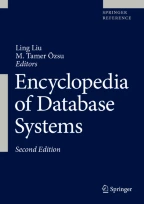Synonyms
Discounted cumulated gain (DCG); Normalized discounted cumulated gain (nDCG)
Definition
Discounted cumulated gain (DCG) is an evaluation metric for information retrieval (IR). It is based on non-binary relevance assessments of documents ranked in a retrieval result. It assumes that, for a searcher, highly relevant documents are more valuable than marginally relevant documents. It further assumes that the greater the ranked position of a relevant document (of any relevance grade), the less valuable it is for the searcher, because the less likely it is that the searcher will ever examine the document and at least has to pay more effort to find it. DCG formalizes these assumptions by crediting a retrieval system (or a query) for retrieving relevant documents by their (possibly weighted) degree of relevance which, however, is discounted by a factor dependent on the logarithm of the document’s ranked position. The steepness of the discount is controlled by the base of the logarithm...
Access this chapter
Tax calculation will be finalised at checkout
Purchases are for personal use only
Recommended Reading
Losee RM. Text retrieval and filtering: analytic models of performance. Boston: Kluwer Academic; 1998.
Hull D. Using statistical testing in the evaluation of retrieval experiments. In: Proceedings of the 26th Annual International ACM SIGIR Conference on Research and Development in Information Retrieval; 1993. p. 329–38.
Sakai T. On the reliability of information retrieval metrics based on graded relevance. Inf Process Manag. 2007;43(2):531–48.
Voorhees E. Evaluation by highly relevant documents. In: Proceedings of the 24th Annual International ACM SIGIR Conference on Research and Development in Information Retrieval; 2001. p. 74–82.
A suggestion by Susan Price (Portland State University, Portland), May 2007, (private communication).
Sakai T. Average gain ratio: a simple retrieval performance measure for evaluation with multiple relevance levels. In: Proceedings of the 26th Annual International ACM SIGIR Conference on Research and Development in Information Retrieval; 2003. p. 417–18.
Bompada T, Chang C, Chen J, Kumar R, Shenoy R. On the robustness of relevance measures with incomplete judgments. In: Proceedings of the 33rd Annual International ACM SIGIR Conference on Research and Development in Information Retrieval; 2007. p. 359–66.
Järvelin K, Kekäläinen J. IR evaluation methods for retrieving highly relevant documents. In: Proceedings of the 23rd Annual International ACM SIGIR Conference on Research and Development in Information Retrieval; 2000. p. 41–8.
Järvelin K, Kekäläinen J. Cumulated gain-based evaluation of IR techniques. ACM Trans Inf Syst. 2002;20(4):422–46.
Kekäläinen J. Binary and graded relevance in IR evaluations – comparison of the effects on ranking of IR systems. Inf Process Manag. 2005;41(5):1019–33.
Kekäläinen J, Järvelin K. Using graded relevance assessments in IR evaluation. J Am Soc Inf Sci Technol. 2002;53(13):1120–9.
Author information
Authors and Affiliations
Corresponding author
Editor information
Editors and Affiliations
Section Editor information
Rights and permissions
Copyright information
© 2018 Springer Science+Business Media, LLC, part of Springer Nature
About this entry
Cite this entry
Järvelin, K., Kekäläinen, J. (2018). Discounted Cumulated Gain. In: Liu, L., Özsu, M.T. (eds) Encyclopedia of Database Systems. Springer, New York, NY. https://doi.org/10.1007/978-1-4614-8265-9_478
Download citation
DOI: https://doi.org/10.1007/978-1-4614-8265-9_478
Published:
Publisher Name: Springer, New York, NY
Print ISBN: 978-1-4614-8266-6
Online ISBN: 978-1-4614-8265-9
eBook Packages: Computer ScienceReference Module Computer Science and Engineering
